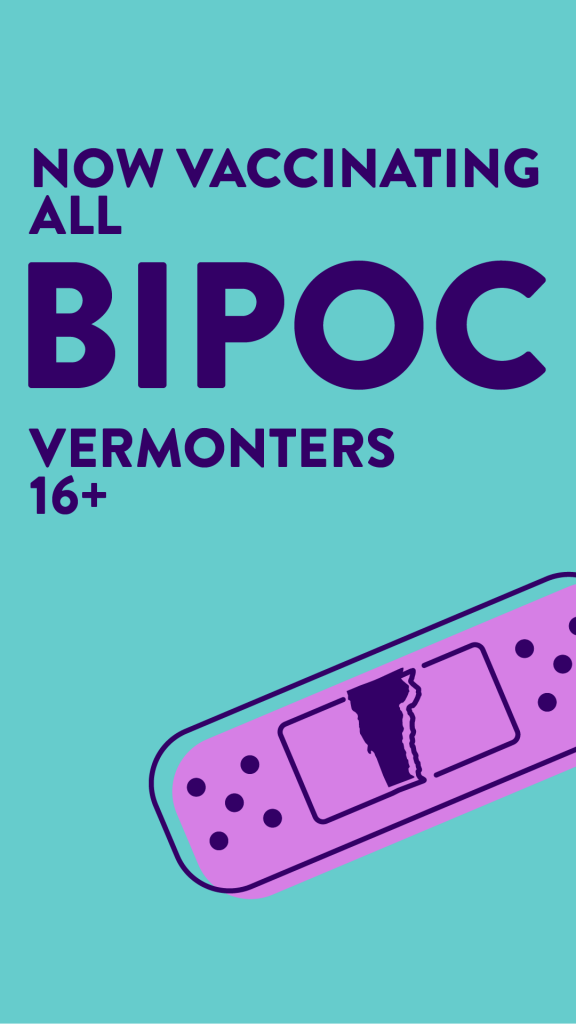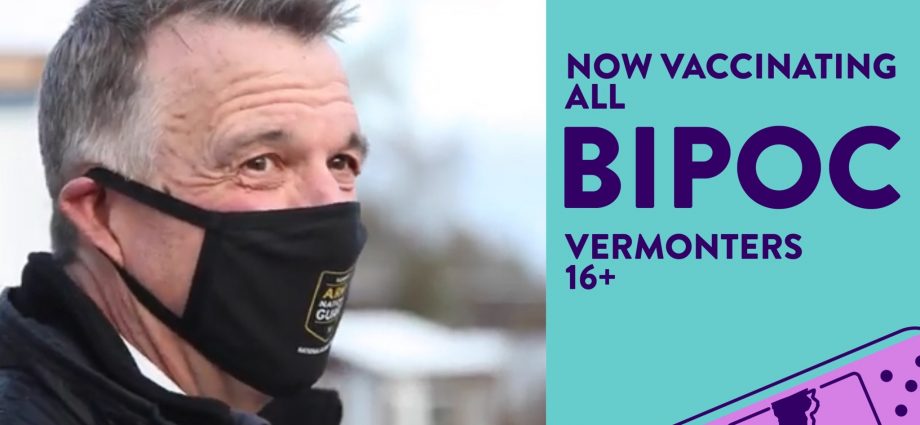According to the CDC’s website, “While CDC makes recommendations for who should be offered COVID-19 vaccine first, each state has its own plan for deciding who will be vaccinated first and how they can receive vaccines. Please contact your local health department for more information on COVID-19 vaccination in your area.”
Vermont has chosen to prioritized people based on the color to which an individual identifies with. Governor Phil Scott tweeted,”If you or anyone in your household identifies as Black, Indigenous, or a person of color (BIPOC), including anyone with Abenaki or other First Nations heritage, all household members who are 16 years or older can sign up to get a vaccine! Get yours at.”
In response to the tweet Matt Walsh replied, “this is not even close to legal”.
This is not even close to legal
— Matt Walsh (@MattWalshBlog) April 2, 2021
Stat released an article in November of 2020, “Health experts want to prioritize people of color for a Covid-19 vaccine. But how should it be done?” The article discusses reports that call for prioritizing people of color such as the report released by The Johns Hopkins Center for Health Security in August of last year.
The second page of the introduction begins, “It is important to acknowledge that a critical difference between the current pandemic and the context envisioned in the 2018 guidance for pandemic influenza vaccine allocation is not only the epidemiological differences between COVID-19 and influenza, such as the higher rates of asymptomatic transmission and fatality risk, but also that we are currently in the midst of a national reckoning on racial injustice, prompted by cases of police brutality and murder. The structural racism that is the root cause of police brutality is also the root cause of the disproportionate impact of the current pandemic on people of color and people living in poverty. Although structural racism was as present in the 2018 and previous influenza epidemics as it is today, the general public acknowledgment of racial injustice was not. Longstanding societal and economic inequities and structural racism in health systems have been barriers to disadvantaged populations gaining access to healthcare, contributing to their lack of trust in governments and public health authorities to meet their needs. Furthermore, communities of color, particularly Black populations, may be more wary of officials responsible for vaccine-related decisions due to past medical injustices committed by authorities on Black communities.
Ongoing social discord that continues to divide the country along political fault lines has also played a role in perceived fairness and transparency related to vaccine allocation and potential differences in vaccine acceptance and uptake across populations. Lastly, as COVID-19 vaccines will arrive after a sustained period of social and economic disruption, many of the associated burdens will fall disproportionately on already disadvantaged communities. Past thinking and strategies regarding allocation of scarce vaccines and resources have not sufficiently addressed these longstanding inequities or their consequences for vaccine acceptance and uptake among the populations who most need the vaccine. New approaches are needed, and this crisis has created an opportunity for positive change.
The intended audience for this report includes policymakers and technical experts in the US federal government currently working on vaccine allocation plans, those at the state and local levels who will be implementing allocation plans, and community leaders, activists, and the general public interested in influencing vaccine allocation decisions.“
Also in the Stat article Lawrence Gostin University Professor at Georgetown law acknowledges “that legally, a public health agency could probably not distribute vaccines to geographic locations based solely on race... There are concerns, however, about legal objections to any framework that uses race and ethnicity when determining vaccine allocation and the way it might be interpreted in court. For instance, judicial scrutiny would not allow health care workers to skip a white person in line for a vaccine in favor of a person of color, as Gostin wrote recently in the Journal of the American Medical Association. He also noted that legally, a public health agency could probably not distribute vaccines to geographic locations based solely on race.”
Gostin told Stat,”My worry is that if there was explicit racial priority given to the Covid-19 vaccine, we could be embroiled in litigation that would really undermine implementation of the vaccine process, and also be at great risk of being overturned by the Supreme Court, particularly with its new conservative majority,”
It appears this legal health expert know they cannot legally prioritize people based on the color of their skin but they still want to find a way to do Vermont seems to have pushed forward regardless.
On the Vermont State Health Department website list Black, Indigenous and people of color (BIPOC) under eligibility.

From the Vermont Health Department Website, “If you or anyone in your household identifies as Black, Indigenous, or a person of color (BIPOC), including anyone with Abenaki or other First Nations heritage, all household members who are 16 years or older can sign up to get a vaccine.” The website also highlights the BIOPIC household-focused clinics which are lead by Windham County NAACP, Racial Justice Alliance and Vermont Professionals of Color Network.
The last line of the section says, “Learn more about working toward equity with a link to another part of their website under the title ‘How Decisions Are Made’. Under this title, it says, “Equity is also a consideration in our vaccination efforts. We are committed to addressing the historical and current factors that contribute to health disparities.” The subsection under this is titled ‘Working toward equity‘. With a section under this directly addressing “Vermonters who are black, indigenous and people of color (BIPOC)”
The section states, “We still have much more to do to address the significant disparities in the rates of COVID-19 infection, hospitalization, and death among Vermonters who are Black, Indigenous and people of color (BIPOC). Right now we are working with funded community partners to understand the barriers that might limit vaccine access for BIPOC Vermonters, as these require unique public health solutions. This coordinated vaccination effort is an important step in working with and compensating trusted community partner networks to reach some of the most historically marginalized people in Vermont.”
It appears this effort is clearly prioritizing communities solely on race. The next question is, will there be legal challenges to this ‘equity’ push? The legal expert from Georgetown fears that just that will happen. Federal laws prohibit discrimination based on a person’s national origin, race, color, religion, disability, sex, and familial status. However, it remains to be seen as of yet where it will go from here.
Stay tuned to Media Right News
- Sources: Tim Pool Sold Operation to The Daily Wire - December 17, 2024
- Jack Smith BTFO After Judge Cannon Denies Gag Order Request on Donald Trump - May 28, 2024
- Nancy Pelosi Refuses to Answer Directly the Question of Whether or Not Donald Trump is Still ‘Eligible’ to be President in Midst of State Ballot Fiascos - January 7, 2024

